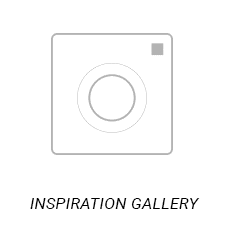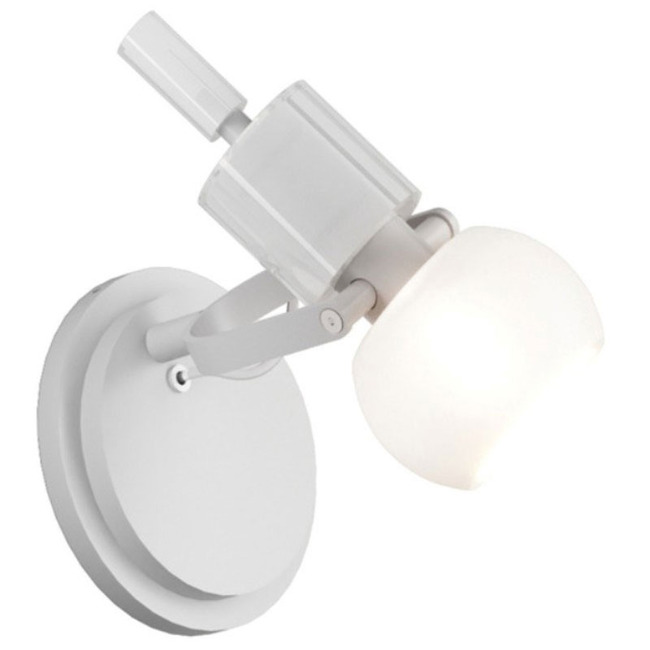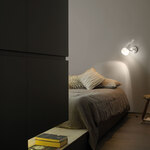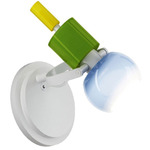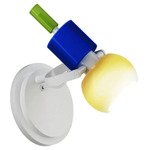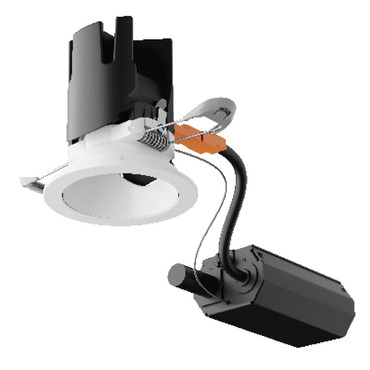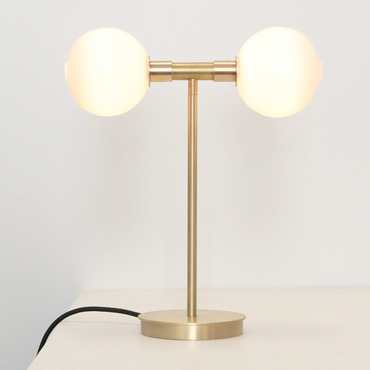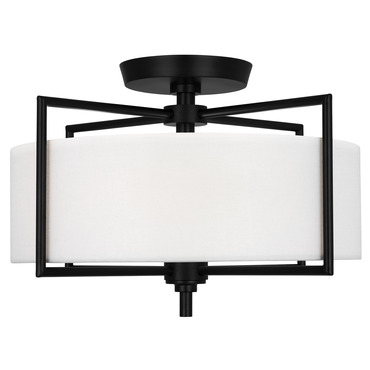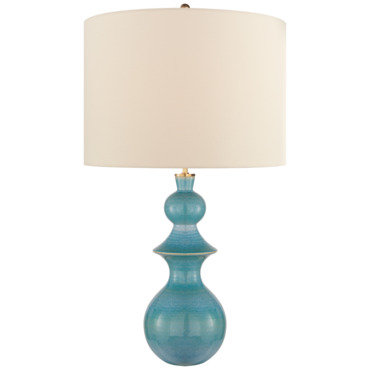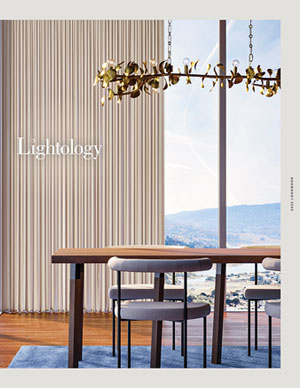Vega Wall Light
By Michele De Lucchi, for Vistosi
Vega Wall Light
By Michele De Lucchi, For Vistosi
$818.00
Color:
White
Usually leaves warehouse in 2-4 weeks
Based upon stock availability.
$818.00
+ FREE SHIPPING
SPEC #: VIS1226167 | ID: VEGA AP BC BC ALO UL
Vega Wall Light
SPEC #: VIS1226167
ID: VEGA AP BC BC ALO UL
Designed by Michele De LucchiRead Bio
Originally introduced as a table lamp in 1982, the Vega Wall Light is an updated take on Michele De Lucchi's iconic post-modernist design. De Lucchi was a key figure in the Memphis design movement, and Vega showcases the hallmarks of the Memphis style with its use of simple geometric forms and bold, contrasting colors. The sconce's articulated head is capped by a translucent glass globe shade and can be aimed to direct light precisely where it is needed.
Available Options
Specifications
- Finish: White
- Color: White
- Size: 5"W x 8"H x 5"D
- Shipping Weight: 5.50 lbs
- Product Weight: 2.20 lbs
- Dimmer: Standard 120V
- Materials: Metal, Glass
- Lamp Source: Halogen
-
Bulb:Bulb not included
- Total Wattage: 60 watts
- Other Bulb Options:

UL

Eco-Conscious Packaging

Recyclable
Specification Sheet / Technical Files

About Michele De Lucchi
Michele De Lucchi started studying architecture at Padua University, switching to Florence University, where he received his diploma in 1975. For two years afterwards, he taught architecture there as an academic assistant. In 1973, Michelle De Lucchi joined forces with other designers and architects to form Cavart, a radical design group.
In 1978, Michele De Lucchi went to Milan to work for Kartell as a designer at Centrokappa, the proprietary Kartell design studio. After meeting the designer Ettore Sottsass, Michele De Lucchi joined the Studio Alchimia designers. For Studio Alchimia exhibitions, Michele De Lucchi came up with several bizarre and comical designer objects, including the 1978 "Sinerpica" table lamp, which was virtually useless as a lamp, as was "Sinvola" (1979), which looks like an outsize pincushion with a rod bearing a light bulb stuck through the middle.
In 1979, Michele De Lucchi also designed several prototype household appliances, which were shown at the Milan Triennale but never produced. From 1980, Michele De Lucchi belonged to Memphis, the designer group around Ettore Sottsass.
In 1982, Michele De Lucchi designed "Lido", a colorful sofa, and, in 1983, the "First" chair for Memphis. In the late 1980s, Michele De Lucchi again returned to good design, landing a bestseller in "Tolomeo", a clearcut, functional aluminium work lamp he co-designed with Giancarlo Fassina for Artemide in 1987.
In 1990, Michele De Lucchi found a small business of his own for making lighting that was neither complex nor had to take into consideration the demands of mass production so it could be produced by craftsmen working in the traditional manner. The Michele De Lucchi milky white lamps "Fata" and "Fatina" of handblown Murano glass date from 2001. On the side, however, Michele De Lucchi continued to work with his design studio for large companies. Since 1979, he had been a design consultant for Olivetti. In 1993, Michele De Lucchi designed branches of Deutsche Bank, in 1995 a shop system for Mandarina Duck, and, in 1997, the Deutsche Bahn travel center in Frankfurt.
Shop This Designer
Vistosi's mission is to produce Murano glass creations of excellent quality and refined design. Vistosi works with internationally renowned designers, who closely follow the latest trends and market demands. The Vistosi collection includes chandeliers, floor lamps, table lamps and wall sconces constructed from hand blown glass and crystal configured in unique shapes and designs.
Explore VistosiOptions
Recently Viewed
Reviews
No Reviews




